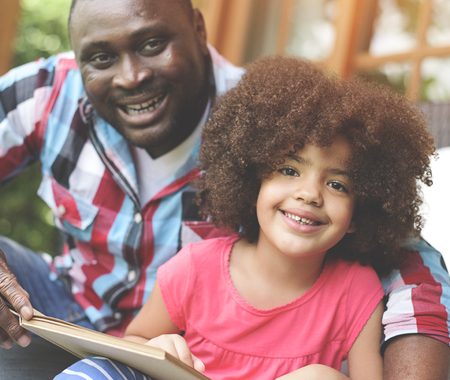We’ve often heard the phrase that children don’t come with a parenting manual and there are likely many times when we parents are convinced that we are ‘doing it all wrong’! Melan Magazine contributor Debbie Best recently embarked on a parenting programme and shares some of her top tips with us.
Parents are the true experts of their own children, even though it may not feel like it from time to time. However, there are those challenging days when you’re at the end of your tether, and you forget what you already know or simply just lose the plot, and in my case, you’re almost frothing at the mouth, with a few swear words thrown in!
Obviously, that’s not the best way to parent, as children model our behaviours. Having said that, we can’t be perfect all of the time can we? So I embarked on a parenting programme and I have to say, it was one of the best decisions I ever made. It enhanced my parenting skills and provided me with strategies that supported me in my role as a connected persons foster carer. I was able to see positive outcomes around behaviour and boundaries, which resulted in me becoming more confident, whilst at the same time adapting my parenting styles that I had honed with my son, to suit the needs of my nephew’s temperament and personality.
I’ve heard many a parent boast, ‘I treat all my children the same’, but is that really possible? Especially if you have two children with very different needs and temperaments? It’s likely the same strategy will not work for both of them.

In addition to this most parents, including myself, use the same upbringing methods learned from our parents which can cause conflict, because it may not be a suitable strategy when dealing with your own children.
It’s important to remember that we should not be aiming for perfect parenting, it does not exist. Rather, we should be trying to provide little people with the building blocks for success while using strategies that evolve with the child and family. We all have our individual temperament and character and sometimes it’s these differences that can cause us to clash and that includes clashing with the personality of our own child/children, which I feel most parents struggle with from time to time.
Tip 1
It important to praise your child when they do something positive and to name the praise, for e.g. rather than say: “good boy/girl”, say “good girl for putting your toys away” or “good boy for sitting nicely at the table”. I have heard some parents say things like: “Well, why should I praise them for tidying their room, they should be doing it anyway.” Praise is a reward for positive behaviour and in my opinion the best way of getting children to repeat positive behaviour. Just think about how you feel, when someone praises you.
Tip 2
Modelling behaviour! One of many ways children learn behaviour is through observing their parents, so it’s important that we set a good example for them to follow. Human beings are not perfect, we all make mistakes, and that is something that we shouldn’t shield our children from. By owning our mistakes, we are teaching our children to take responsibility for owning their own behaviour. This does not happen overnight, it can take up to six weeks or more dependent on the child’s personality and temperament to learn or unlearn a behaviour. Patience and consistency are key.
Tip 3
Problem solving… erm! Guilty as charged! I’ve even been accused of being a rescuer. What parent doesn’t want to rescue their child in a time of need and resolve a problem for them? Well, that is not going to help them to develop their own problem solving skills and neither will it support with building resilience, self-esteem and confidence. So rather than tell them what they should have done to solve a problem, ask your child what they think they could do to resolve it, age appropriately of course. There will be times when you will need to support your child/children in this process, by offering a variety of scenarios, for e.g. “What could you have done differently?” is a good question to ask or “How would you feel if someone took your sweets?” When it comes to problem solving, “why” questions could cause barriers, because simply, believe it or not, we genuinely sometimes don’t know why! Starting a question with who, what, when, where or how, tends to work best.
For parenting programmes in the London Borough of Hammersmith and Fulham area, you can contact Ushma Bal at the Masbro Centre on 0207 605 0800 Monday – Friday.
Copyright/Image Credit (- All Images): 123RF Stock Photo.












